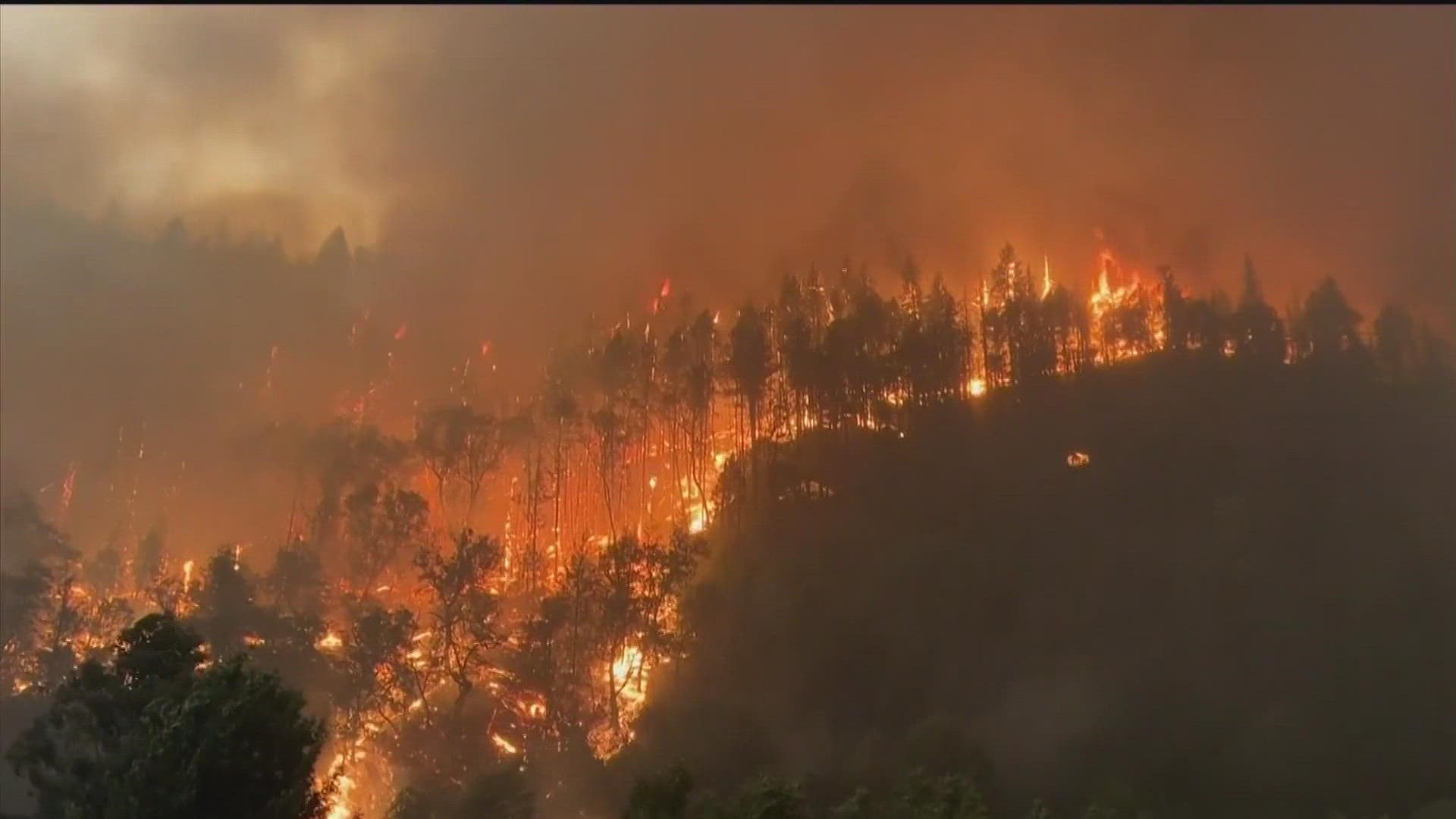SAN DIEGO — An excessive heat warning is in effect in San Diego County through Labor Day weekend, ending on Monday.
It's just one of several extreme weather events impacting people around the world, and experts say they’re signs of what’s to come due to global warming.
Video captured in Pakistan this week shows flooding so severe, that the only way out for some was by helicopter.
Earlier this summer, Yellowstone National Park was ravaged by flood water.
In Europe, the continent has experienced record breaking heat, killing thousands.
In China, the world's third longest river is drying up, revealing ancient statues. That's in addition to wildfires, which in California, are now burning year round.
"Temperatures are clearly warming all over the globe," said Alexander Gershunov is a research meteorologist at the Scripps Institution of Oceanography, UCSD.
He studies extreme weather events and how they relate to our changing climate, saying there's no question the two are directly linked.
Take this heat wave San Diegans are currently sweltering in, for example. Gershunov says it's climate change in action.
“These large heat waves occur from time to time, but gradually they're becoming hotter, longer lasting, more frequent and also more humid because of climate change,” said Gershunov.
According to Gershunov, of all the extreme weather events, heat waves are most directly related a warming climate, and the most deadly.
As for rain storms, while they're becoming less frequent, hence our ongoing drought, Gershunov says when they do happen, they're more extreme.
"Because the warmer atmosphere there's just simply a larger ability to hold moisture and so in very extreme storms when precipitation is very efficient, more moisture in the atmosphere means that more of it falls out," Gershunov said. "Specifically in California for example, its precipitation extremes are expected to get greater.”
That means more communities, including in San Diego, are at greater risk for flooding.
Not only that, but melting glaciers and warmer temperatures, which cause water to expand, have led to sea levels rising.
“Rising sea levels mean there's more coastal erosion, beach erosion, cliff erosion and all the problems that go along with that,” said Gershunov.
Gershunov says the best thing people can do to slow global warming is reduce their dependance on fossil fuels.
He also suggests voting for those who will do something about it at the local, state and federal levels.
WATCH RELATED: Extended heat wave to bring triple digits to San Diego County (August 2022)

